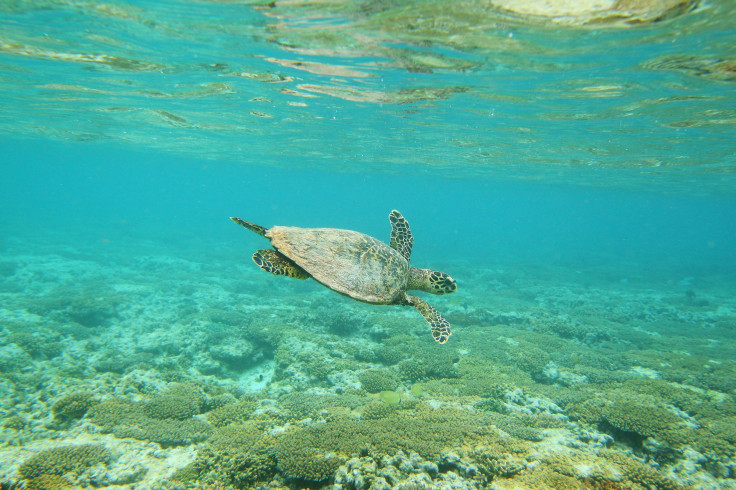Climate Change: Underwater Kelp Forests In Australia Wiped Out By Marine Heatwave, Scientists Say

About 90 percent of the kelp forest off the western coast of Australia has been wiped off between 2011 and 2013, scientists say. According to a study published in the journal Science, 100 kilometers (over 60 miles) of the forests were wiped out due to a marine heat wave between the period, upsetting marine biodiversity.
The forests made up the northwestern tip of the Great Southern Reef — a system of rocky reefs that run for 1,400 miles along the south coast of Australia. They have now disappeared, making way for seaweed turfs, corals, and coral fish, most commonly found in tropical and subtropical waters— preventing the kelp from growing again.
The lead author of the study, Dr. Thomas Wernberg of the University of Western Australia’s oceans institute told the Guardian that over 60 miles of kelp forest died following a marine heat wave in 2011 that caused an increase in the ocean temperature by 2 degrees Celsius (35.6 degrees Fahrenheit).
The destruction of the kelp caused the functional extinction of 143 square miles of rocky reefs, extending downward from Kalbarri, about 350 miles north of Perth in Western Australia.
“I think the next big heatwave is just going to push what we see in the north ultimately further down, and then it just depends on how bad that heatwave is, whether we go all the way down to Perth or whether we just go another 10km (about 6 miles),” Wernberg said.
“All the projections are that it will get warmer, we will get more frequent heatwaves, so unfortunately I think it’s just a matter of time,” he added.
Even though the kelp forests are not as popular as the Great Barrier Reef, they play an important role in balancing the marine ecosystem that is also the key to Australia’s $10 billion seafood industry. If the trend continued for longer, Wernberg said the forests could retract to the southern tip of the state, causing vast environmental and economic damage with consequences equivalent to the loss of the Great Barrier Reef.
Professor Craig Johnson, from the University of Tasmania’s Institute for Marine and Antarctic Studies, told the Guardian that the value of the Great Southern Reef was “completely under-appreciated,” and that the number of endemic species was “orders of magnitude more on the Great Southern Reef than the Great Barrier Reef.”
© Copyright IBTimes 2024. All rights reserved.





















